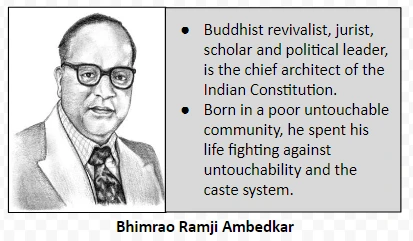A nation is a complex community, defined by shared cultural, historical, and political factors like language, religion, ethnicity, history, or regional culture. However, it’s difficult to provide a single defining characteristic for nations because there are exceptions to every possible criterion.
Nations don’t necessarily share a single common language, religion, ethnicity, etc., and these characteristics can be shared across multiple nations.
POINTS TO PONDER
A nation is characterized by a sense of belonging and unity stemming from a shared history and culture, while a state is a tangible entity comprising government and institutional structures. Do you believe it is possible for a nation to exist without a corresponding state, or for a state to exist without embodying the characteristics of a nation? Can you provide examples of such scenarios, if they exist?
National unity with cultural diversity – Building a democratic “state-nation’’
Source: Adapted from UNDP Human Development Report 2004, Ch.3, Feature 3.
POINTS TO PONDER
Regionalism is the expression of a common sense of identity and purpose by people within a specific geographical region, united by its unique language, culture etc. In the Indian context, this expression is amplified due to the country’s extensive diversity. Chauvinistic regionalism entails prioritizing one’s regional interests over others. In this regard, what is your opinion on the concept of regional reservations in private sector employment, and what do you perceive as its advantages and disadvantages?
Linguistic States Helped Strengthen Indian Unity
Source: Adapted from an article by Ramachandra Guha in the Times of India, 1 November 2006.
Contentious aspects of cultural diversity often revolve around religious communities and religion-based identities. These issues fall into two main categories:

<div class="new-fform">
</div>